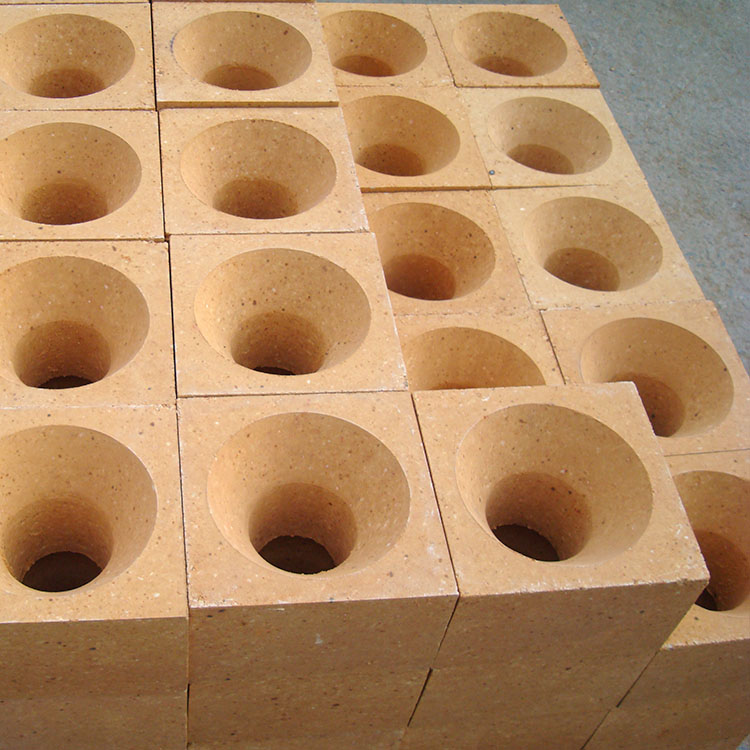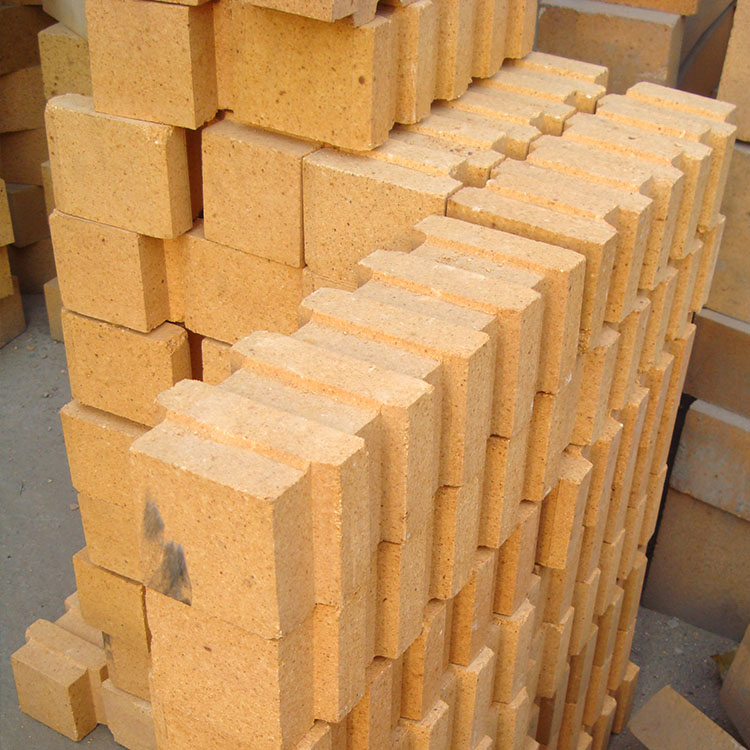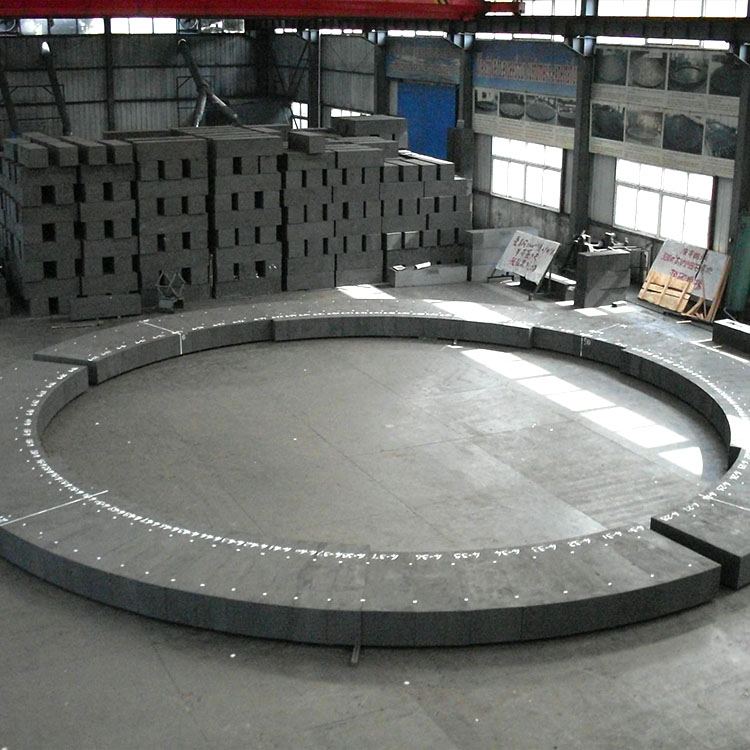Optimizing Export Kiln Performance with High-Alumina Dense Wear-Resistant Clay Bricks and Expert Technical Support
This article comprehensively explores the professional application and maintenance of high-alumina dense wear-resistant clay bricks in high-temperature kiln environments. It covers essential pre-installation preparations, critical installation procedures, and the importance of aligning alumina content with refractory temperature requirements to ensure stable operation between 1580°C and 1770°C. The article further presents methods for wear and chemical corrosion detection along with periodic maintenance strategies. By referencing industry standards and practical experience, it aims to enhance refractory lining management, maximize equipment performance, and ensure operational safety. This guide is designed for companies and technical personnel seeking high-quality refractory solutions to improve the overall durability and efficiency of export kiln equipment.

Expert Selection and Application of High-Alumina Dense Abrasion-Resistant Clay Bricks for Kiln Furnaces
High-alumina dense abrasion-resistant clay bricks play a critical role in maintaining the structural integrity and operational efficiency of high-temperature kiln furnaces. Their unique composition, combining dense microstructure with elevated alumina (Al₂O₃) content typically ranging from 48% to 60%, ensures extraordinary resistance to thermal shock, mechanical wear, and chemical corrosion under extreme conditions. With refractory service temperatures spanning from approximately 1580°C to 1770°C, these bricks are engineered to deliver optimal durability, making them indispensable for export kiln furnace equipment seeking enhanced lifespan and safety compliance.
Technical Parameters and Material Performance
The backbone of selecting suitable refractory bricks hinges on understanding crucial technical parameters, primarily the alumina content and the associated refractory temperature limit. For dense abrasion-resistant clay bricks, the alumina content directly influences thermal stability and chemical inertness. Industry standards recommend:
| Alumina Content (Al₂O₃) |
Refractory Temperature |
Recommended Application |
| 48% – 52% |
1580°C–1650°C |
Lower-medium temperature kiln zones |
| 53% – 60% |
1650°C–1770°C |
Hot end kiln lining under severe abrasion & corrosion |
Selecting bricks that match the expected operating temperatures and abrasion severity ensures longer refractory life and stable kiln operation.
Installation Preparation and Best Practices
Proper installation is paramount to maximize the performance and longevity of high-alumina dense abrasion-resistant clay bricks. Prior to installation, it is critical to:
- Conduct a thorough kiln shell inspection to ensure structural integrity and identify any pre-existing damage.
- Clean and dry the installation surface to remove dust, oil, or old refractory residues that could affect adhesion.
- Confirm the correct brick type and dimensions against design specifications, ensuring consistent alumina content e.g., 55% Al₂O₃ for hot zone applications.
- Prepare heat-resistant mortar or specialized refractory adhesives compatible with dense clay bricks to guarantee firm bonding under thermal cycling.
During installation:
- Lay bricks with uniform joints not exceeding 3 mm to minimize heat loss and prevent brick movement.
- Apply consistent pressure to ensure bricks seat properly without gaps.
- Follow manufacturer-recommended curing cycles for adhesives to avoid premature thermal stress.
- Install expansion joints at specified intervals to accommodate thermal expansion and prevent cracking.
Wear and Chemical Corrosion Detection Techniques
Routine monitoring is essential for preemptive maintenance and safeguarding kiln operations. Key techniques include:
- Visual Inspection: Regularly examine brick surfaces for signs of spalling, cracking, or deformation.
- Ultrasonic Thickness Gauging: Measures remaining brick thickness to quantify abrasive wear rates, flagging bricks nearing the critical wear threshold of ~15 mm.
- Chemical Spot Testing: Detects corrosive deposits such as alkali sulfates or chlorides indicative of chemical attack, especially in coal-fired kiln environments.
- Infrared Thermography: Identifies hot spots caused by refractory failure, enabling targeted repairs before catastrophic damage.
Implementing a maintenance schedule based on these diagnostics every 3 to 6 months can extend refractory life by up to 25%, according to industry case studies.

Periodic Maintenance Strategies
Maintenance strategies should integrate data-driven wear assessment with practical interventions:
- Replace heavily worn bricks exhibiting >30% thickness loss or ‘brick bounce’ during inspection.
- Address chemical corrosion areas by integrating corrosion-resistant coating systems or increasing alumina content in vulnerable zones.
- Ensure kiln shutdowns incorporate controlled cooling to prevent thermal shock to bricks during maintenance cycles.
- Train operating personnel on real-time monitoring and emergency response protocols to reduce refractory damage during abnormal operations.

Standards and Field-Proven Best Practices
Compliance with international refractory standards such as ASTM C864 or ISO 10095 ensures quality assurance throughout the brick supply chain and installation process. Field data from reputable manufacturers reveal that:
- Adherence to specified alumina content significantly reduces failure rates due to slag penetration and mechanical abrasion.
- Correct installation aligns with kiln structural tolerances, preventing displacement and premature refractory degradation.
- Tailored maintenance based on precise wear detection enhances operational availability by minimizing unplanned downtime.

Unlock the Full Potential of Your Kiln Furnaces with Our Advanced High-Alumina Dense Abrasion-Resistant Clay Bricks and Expert Technical Support
For enterprises committed to elevating kiln performance and extending refractory life, partnering with trusted specialists offering premium high-alumina dense abrasion-resistant clay bricks and comprehensive technical support is essential. Our solutions integrate stringent quality control, tailored installation guidance, and proactive maintenance protocols designed to maximize uptime and safeguard equipment investment.
Discover High-Alumina Dense Abrasion-Resistant Clay Bricks Today





